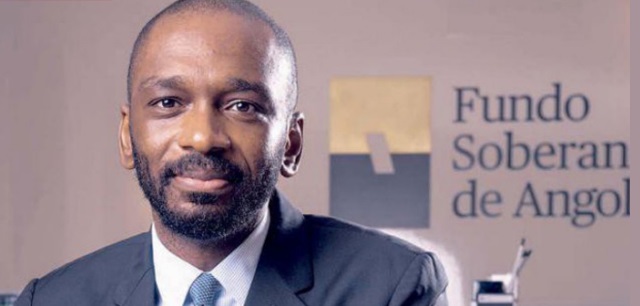
The Isabel Dos Santos case
But stories about the wealth of children of First Families have garnered new interest since an Angolan court ordered the seizure of an estimated $1 billion worth of assets of Isabel dos Santos, who is often described as Africa’s richest woman.
Dos Santos, the 46-year-old daughter of former Angolan President Jose Eduardo dos Santos, has a fortune estimated at $2.2 billion by Forbes magazine, which monitors assets of the rich and publishes an annual list.
An Angolan court on Dec. 23 ordered her bank accounts frozen and her shares in local companies seized, including ones from the Unitel telecommunications firm, the BFA bank and the cement company Cimangola, according to Angola’s state news agency.
The Luandan court document dated Dec. 23 also ordered an asset freeze of the personal bank accounts of dos Santos, her husband Sindika Dokolo and Mario da Silva in Angola as well as stakes they hold in nine Angolan firms after the government accused them of causing the state losses of over $1 billion.
The move is seen as part of President Joao Lourenco’s anti-corruption drive. Eduardo dos Santos’s 38-year rule as president was marked by widespread corruption in which billions of dollars of state funds went missing, according to investigations by international financial institutions.
Isabel Dos Santos has condemned the seizures as a “politically motivated attack” against her. She claimed the trial was held in “total secrecy” and she was not able to “answer the trumped-up charges … which were based on fabricated documents.”
Dos Santos vowed to “use all the instruments of Angolan and international law at my disposal to fight this order and ensure the truth comes out.”
She says she succeeded in amassing such wealth because of her education and her business acumen, not because of her father’s connections.
Fluent in Portuguese and English, dos Santos describes herself on Twitter as an “engineer, entrepreneur, investor, public figure.” She heads a vast business empire, controlling companies in Angola and Portugal.
Dos Santos is also battling to hold on to her investments outside Angola. Apparently, there could be an attempt by the Angola government to request the Portuguese authorities to launch an asset seizure operation.
But in an interview with Público, Isabel dos Santos, said the idea that Portuguese authorities might launch an asset seizure operation at Luanda’s request “does not seem to be a viable scenario.” In any case, she said, her investments in Portugal should be safe as she has invested “in Portuguese companies with little or no connection to Angolan companies.”
In a written interview with Público, she argues that the seizure of her assets “has no impact or effect on investments outside Angola, and therefore has no direct or indirect impact in Portugal or other countries.”
But the presidents of Angola and Congo have told her and her Congolese husband Sindika Dokolo to cooperate with the justice system after their assets were frozen as the best way forward.
She now lives outside of Angola because she says she faces death threats at home.
Based on her story, Professor of Political Science and Afroamerican and African Studies, M. Anne Pitcher and Edalina Rodrigues Sanches who is a Postdoctoral Researcher in Political Science have published a study titled `The Paradox of Isabel dos Santos: State Capitalism, Dynastic Politics, and Gender Hostility in a Resource-Rich, Authoritarian Country’.
In their summary, they describe how throughout the world, the sons and daughters of many state leaders attract media attention for their exploits.
They point out that Isabel dos Santos, the daughter of José Eduardo dos Santos, the former president of Angola (1979-2017), is – like other famous children of politicians – the object of much media scrutiny regarding her investments and lavish spending habits.
They say: “We argue that the change in portrayals of Isabel over time offers insight into the dimensions of dynastic politics in authoritarian settings. Whereas her position as wealthy presidential daughter ironically reinforced patriarchal political oligarchy, her downfall demonstrates the limits of hereditary politics in Angola”.
Their work relies on a systematic study of newspaper articles by Angolan and international media, readers’ comments, social media and websites to examine the conflicting portrayals of Isabel from 2010 to 2018. This period covers celebratory depictions of Isabel during the growth of her business empire to her dismissal as head of Sonangol after her father left the presidency.
 The Independent Uganda: You get the Truth we Pay the Price
The Independent Uganda: You get the Truth we Pay the Price




Robert Mugabe died on 6th September 2019.